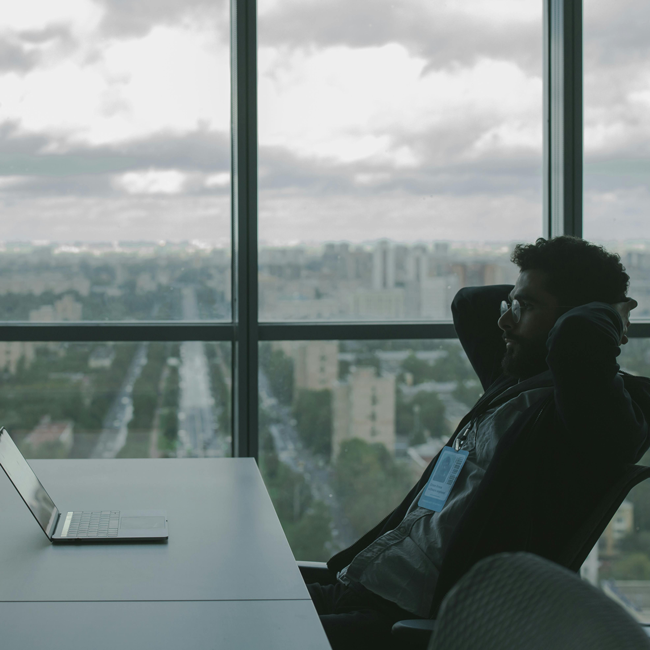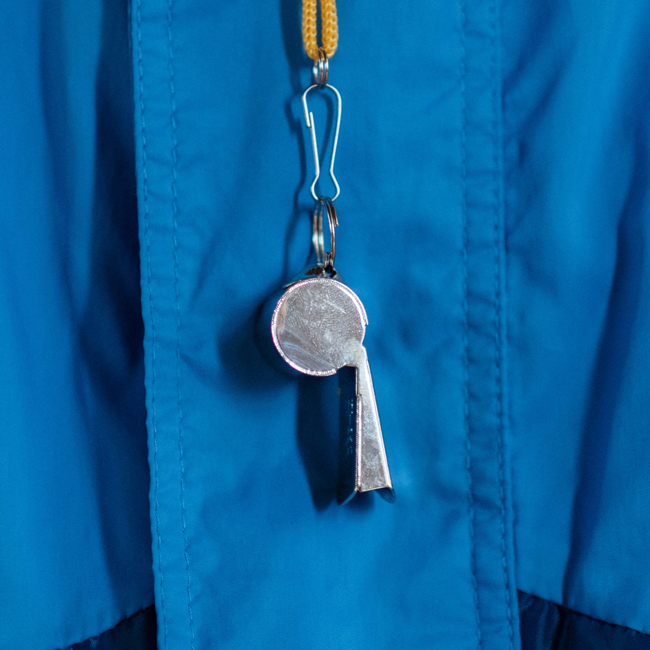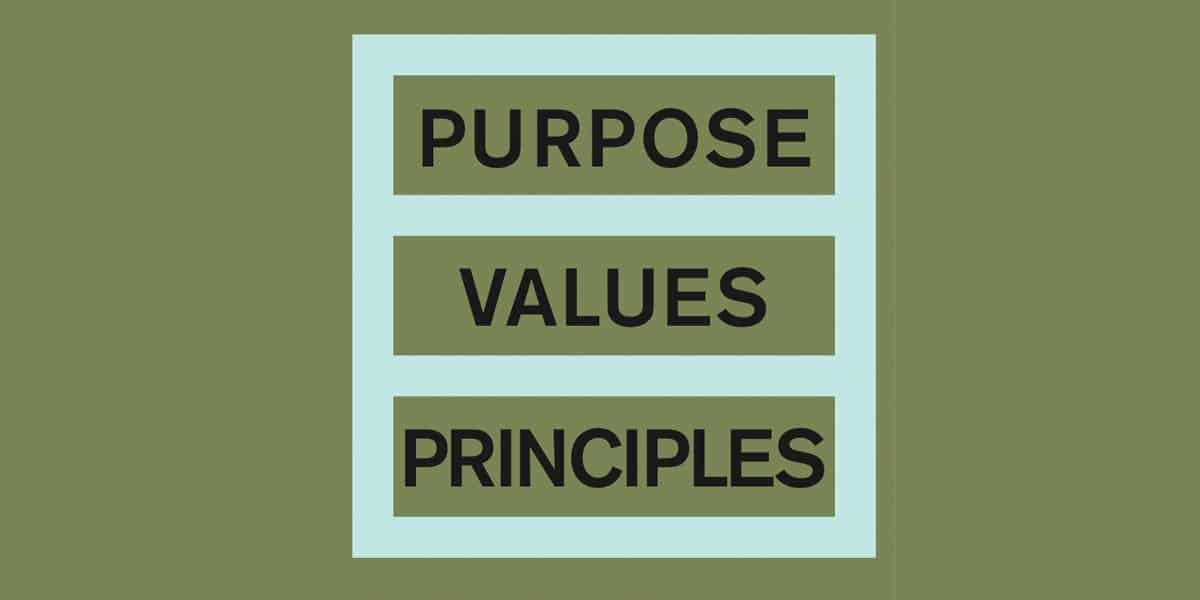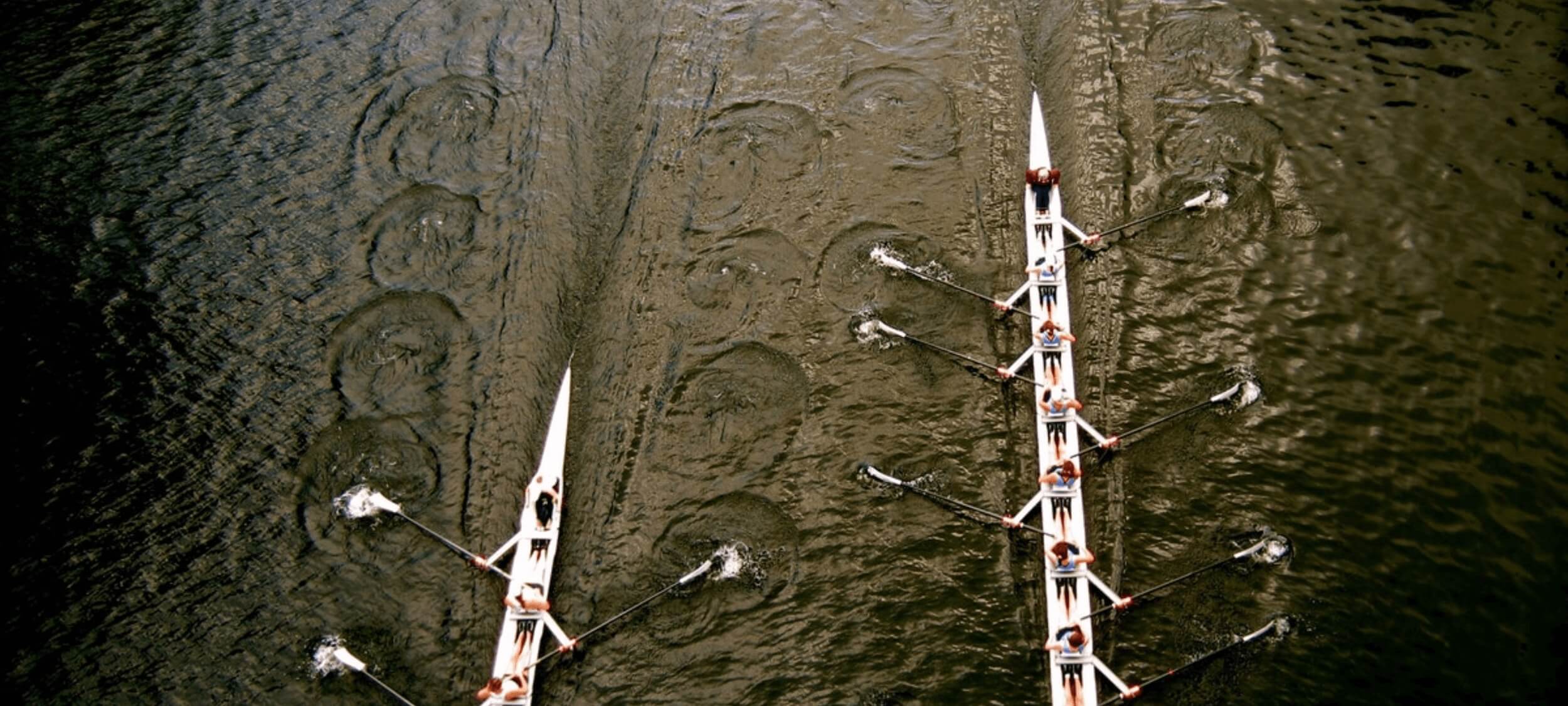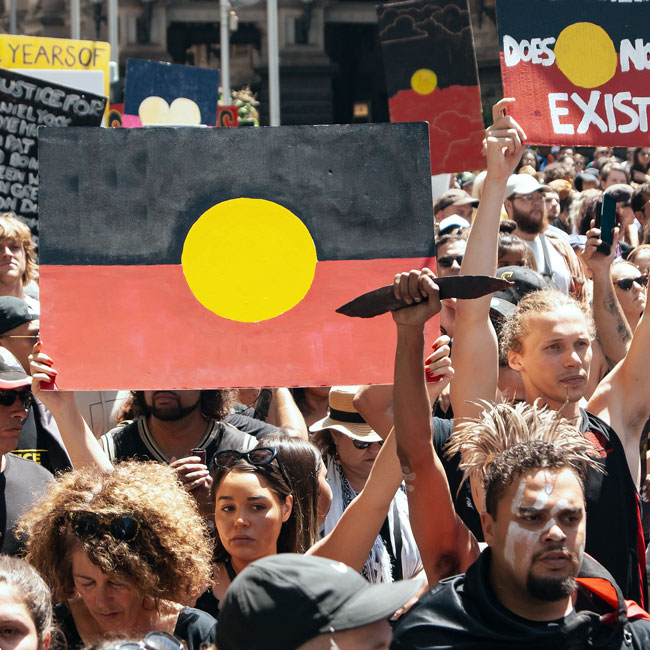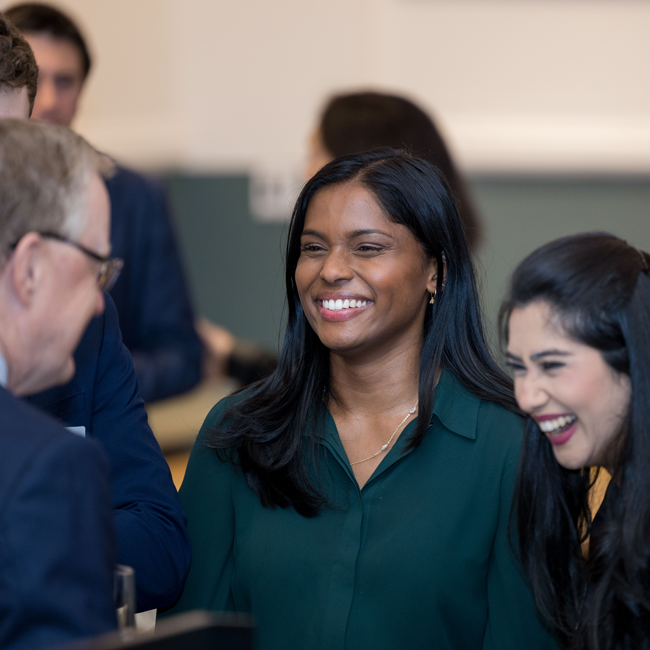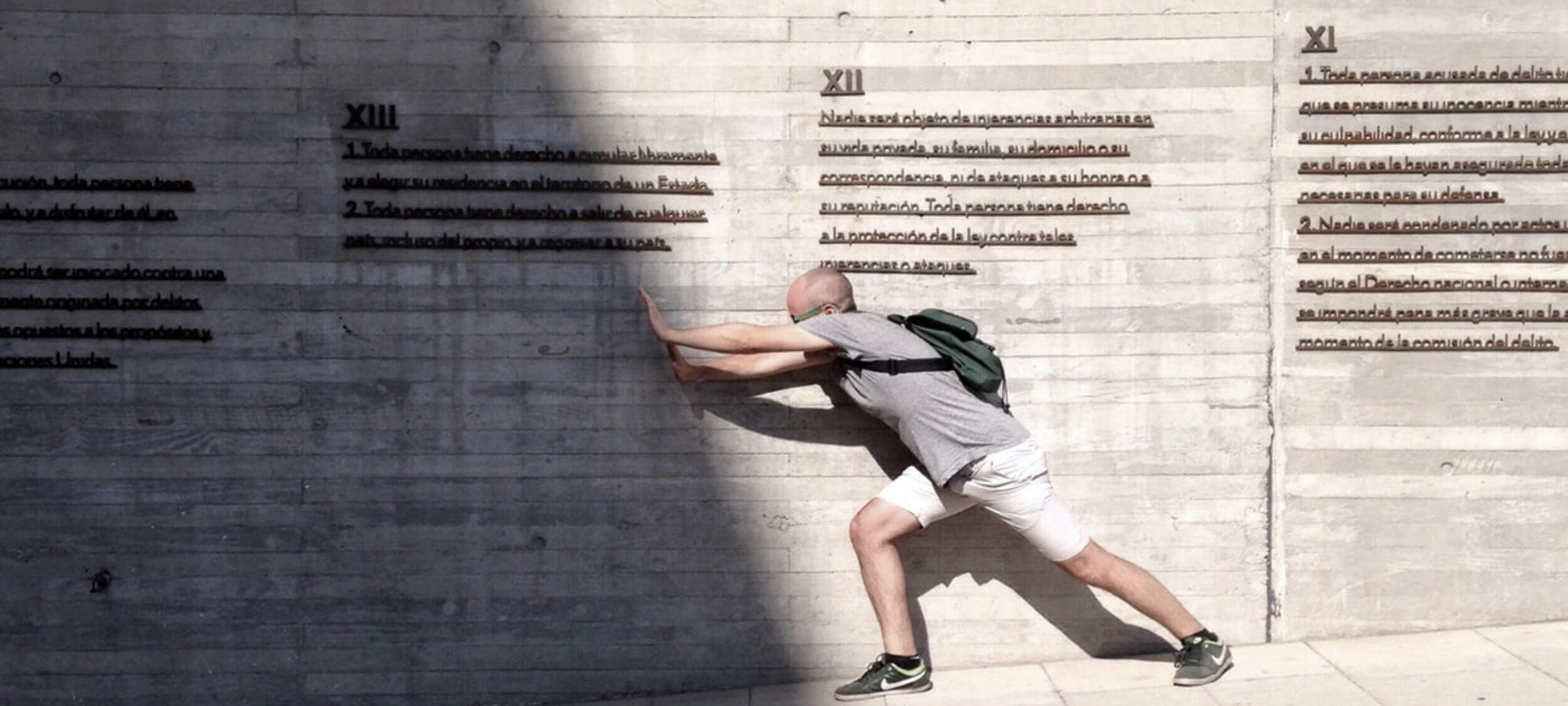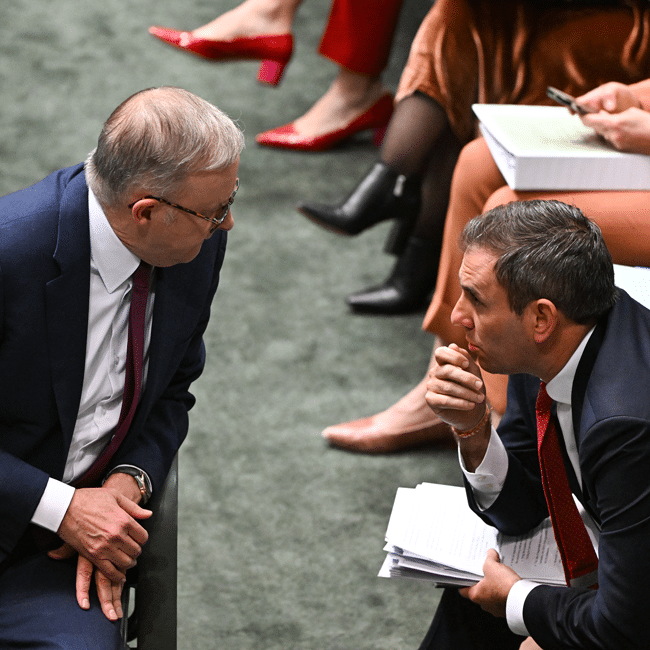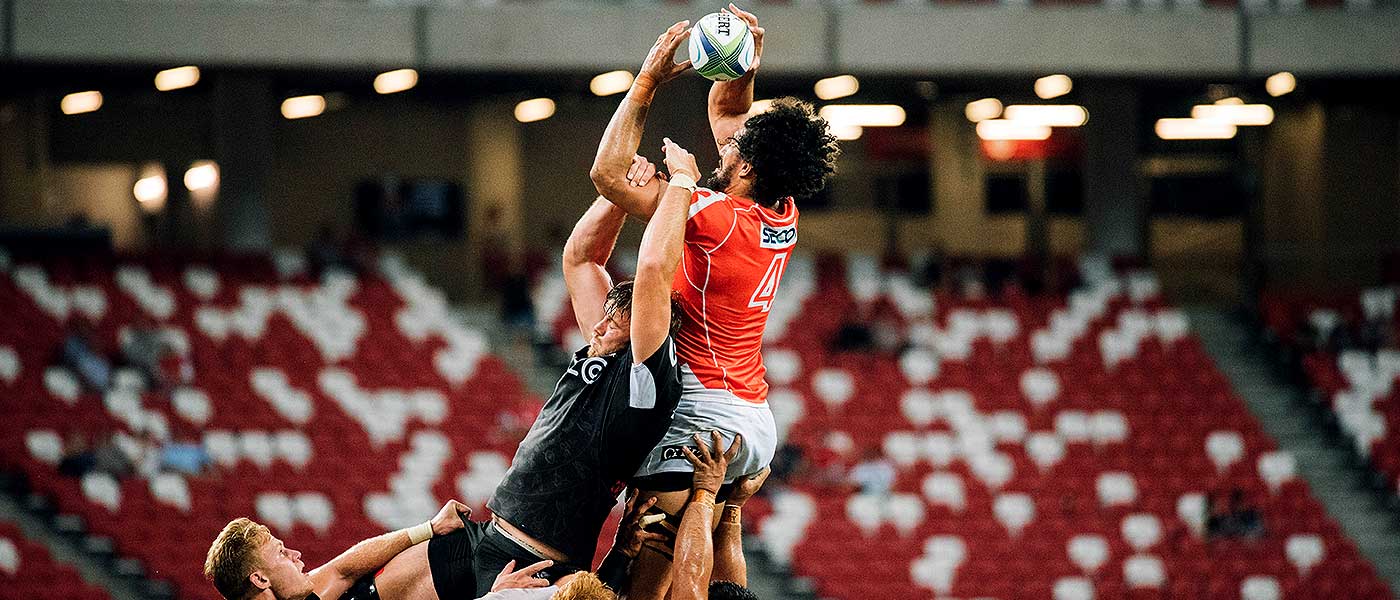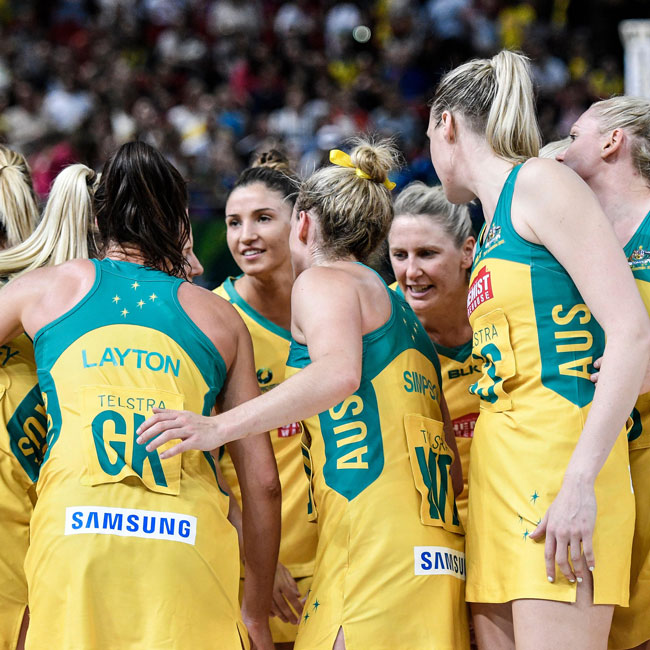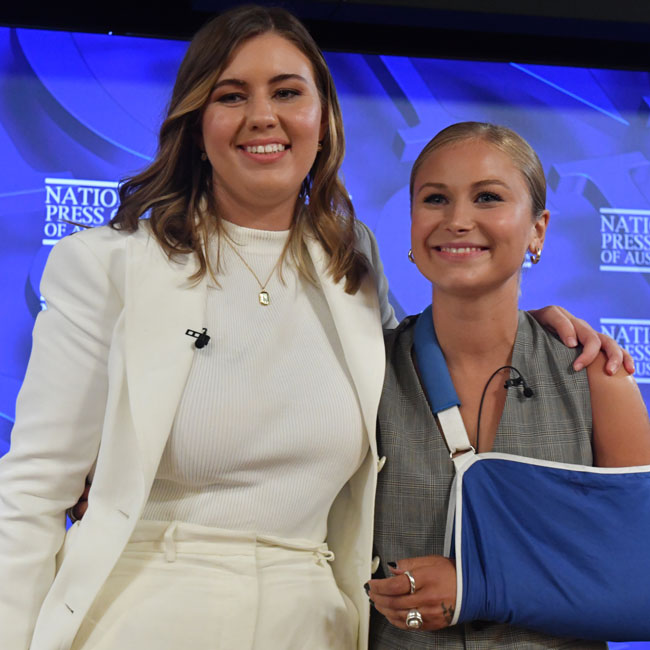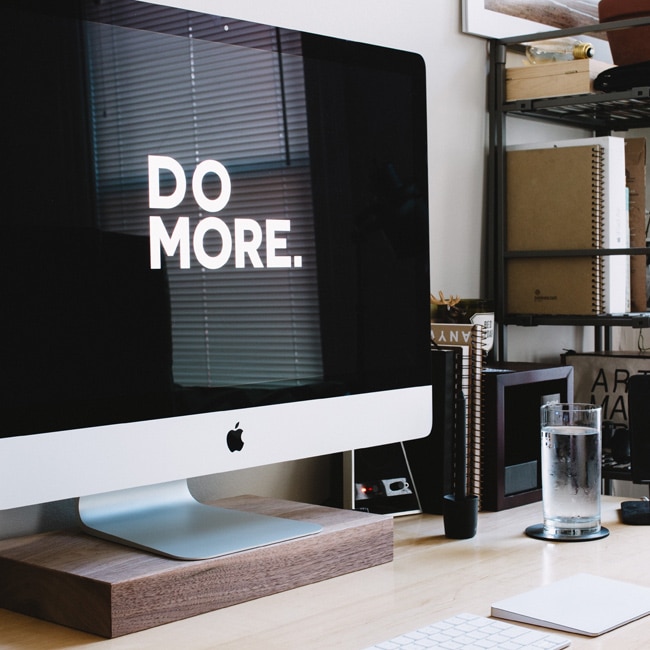Access to ethical advice is crucial

Access to ethical advice is crucial
Opinion + AnalysisBusiness + LeadershipSociety + Culture
BY Simon Longstaff Major General Paul Symon Dr Miah Hammond-Errey 19 MAR 2024
Better ethical approaches for individuals, businesses and organisations doesn’t just make moral sense. The financial benefits are massive, too.
It might seem a little ironic to take ethics advice from an intelligence agency that consciously deploys deception, yet it shows why access to ethical advice is vitally important. Indeed, we argue that the example of an ethics counsellor within ASIS demonstrates why every organisation should have (access to) an ethical adviser.
Ethics is often considered to be a personal or private activity, in which an individual makes decisions guided by an ethical code, compass or frame of reference. However, emerging technologies necessitate consideration of how ethics apply “at scale”.
Whether we are conscious of this (or not), ethical decisions are being made at the “back end” – or programming phase – but may not be visible until an outcome or decision, or user action, is reached at the other end of the process.
Miah Hammond-Errey describes in her book, Big Data, Emerging Technologies and Intelligence: National Security Disrupted, how “ethics at scale” is being driven by algorithms that seek to replicate human decision-making processes.
This includes unavoidable ethical dimensions, at increasing levels of speed, scope and depth – often in real time.
The concept of ethics at scale means that the context and culture of the companies and countries that created each algorithm, and the data they were trained on, increasingly shapes decisions at an individual, organisation and nation-state level.
Emerging technologies are likely to be integrated into work practices in response to the world itself becoming more complex. Yet, those same technologies may themselves make the ethical landscape even more complex and uncertain.
The three co-authors recently discussed the nexus of ethics, technology and intelligence, concluding there are three essential elements that must be acknowledged.
First, ethics matter. They are not an optional extra. They are not something to be “bolted on” to existing decision-making processes. Ethics matter: for our own personal sense of peace, to maximise the utility of new technologies, for social cohesion and its contribution to national security and as an expression of the values and principles we seek to uphold as a liberal democracy.
Second, there is a strong economic case for investing in the ethical infrastructure that underpins trust in and the legitimacy of our public and private national intuitions. A 10 per cent improvement in ethics in Australia is estimated to lead to an increase in the nation’s GDP of $45 billion per annum. This research also shows improving the ethical reputation of a business can lead to a 7 per cent increase in return on investment. A 10 per cent improvement in ethical behaviour is linked with a 2.7 to 6.6 per cent increase in wages.
Third, ethical challenges are only going to increase in depth, frequency and complexity as we integrate emerging technologies into our existing social, business and government structures. Examples of areas already presenting ethical risk include: using AI to summarise submissions to government, using algorithms to vary pricing for access to services for different customer segments or perhaps using new technologies to identify indicators of terrorist activity. That’s before we even get to novel applications employing neurotechnology such as brain computer interfaces.
Ethical challenges are, of course, not new. Current examples driven by new and emerging technologies include privacy intrusion, data access, ownership and use, increasing inequality and the impact of cyber physical systems.
However, an extant need for ethical rumination is, for now at least, a human endeavour.
As a senior leader of ASIS, with a background in the military, Major General Paul Symon (retd) strongly supported resourcing a (part-time) ethics counsellor. He was aware the act of cultivating agents, and the tradecraft involved, would inevitably demand moral enquiry by the most accomplished ASIS officers.
His belief was without a solid understanding of ethics, there was no standard against which the actions of the profession, or the choices of individuals, could be measured.
So, a relationship emerged with the Ethics Centre. A compact of sorts. Any officer facing an ethical dilemma was encouraged to speak confidentially to the ethics counsellor. The conversation and the moral reasoning were important.
General Symon guaranteed no career detriment to anyone who “opted out” of an activity so long as they had fleshed out their concerns with the ethics counsellor. Often, an officer’s concerns were allayed following discussion, and they proceeded with an activity knowing there was a justification both legally and ethically.
Perhaps if we’d had ethical advisers available across other institutions, we might have prevented some of the greatest moral failures of recent times, such as the pink batts deaths and robodebt.
If we had ethical advisers accessible to industry, then perhaps we’d have avoided the kind of misconduct revealed in multiple royal commissions looking into everything from banking and finance to the treatment of veterans to aged care.
We believe our work over years, including examples in defence and intelligence, demonstrates practical examples and the requirement to build our national capacity for ethical decision-making supported by sound, disinterested advice. That is one reason we support the establishment of an Australian Institute for Applied Ethics with the independence and reach needed to work with others in lifting our national capacity in this area.
Pledge your support for an Australian Institute of Applied Ethics. Sign your name at: https://ethicsinstitute.au/
This article was originally published in The Canberra Times.

Ethics in your inbox.
Get the latest inspiration, intelligence, events & more.
By signing up you agree to our privacy policy
You might be interested in…
Opinion + Analysis
Business + Leadership
Why businesses need to have difficult conversations
Opinion + Analysis
Society + Culture
Lisa Frank and the ethics of copyright
Opinion + Analysis
Business + Leadership, Relationships, Society + Culture
Renewing the culture of cricket
Reports
Business + Leadership
Thought Leadership: Ethics in Procurement
BY Simon Longstaff
Simon Longstaff began his working life on Groote Eylandt in the Northern Territory of Australia. He is proud of his kinship ties to the Anindilyakwa people. After a period studying law in Sydney and teaching in Tasmania, he pursued postgraduate studies as a Member of Magdalene College, Cambridge. In 1991, Simon commenced his work as the first Executive Director of The Ethics Centre. In 2013, he was made an officer of the Order of Australia (AO) for “distinguished service to the community through the promotion of ethical standards in governance and business, to improving corporate responsibility, and to philosophy.” Simon is an Adjunct Professor of the Australian Graduate School of Management at UNSW, a Fellow of CPA Australia, the Royal Society of NSW and the Australian Risk Policy Institute.
BY Major General Paul Symon
Major General Paul Symon (retd) is a former director-general of the Australian Secret Intelligence Service.
The Ethics Institute: Helping Australia realise its full potential

The Ethics Institute: Helping Australia realise its full potential
Opinion + AnalysisBusiness + LeadershipSociety + Culture
BY Simon Longstaff 11 MAR 2024
It has been some three years since we posed a simple question: to what extent (if any) does ethics affect the economy?
The team we asked to answer that question was led by the economist, John O’Mahony of Deloitte Access Economics. After a year spent analysing the data, the answer was in. The quality of a nation’s ethical infrastructure has a massive impact on the economy. For Australia, a mere 10% improvement in ethics – across the nation – would produce an uplift on GDP of $45 billion per annum. Yes, that’s right, a decade later the accrued benefit would be $450 billion – and growing!
Some things are too good to be true. This is not one of them.
The massive economic impact is a product of a very simple formula: increased ethics=increased trust=lower costs and higher productivity. Increasing trust is the key. Not least because without it, every case for reform will either fall short or fail … no matter how compelling. Ordinary Australians going about their lives simply will not allow reform when they believe that the benefits and especially the burdens of change will be unfairly distributed. So it is that the incredible potential of our nation is held hostage to factors that are entirely within our control.
We invest billions in physical and technical infrastructure in the hope that it will lead to improvement in our lives. We invest almost nothing in the one form of infrastructure that determines how well these other investments will perform. That is, we invest precious little in our ethical infrastructure.
My first reaction to receiving the Deloitte Access Economics report was to try to engage with the Federal Government of the day. I thought that whatever one might think about ‘ethics’ as a concept, there could be no ignoring the economics. I was wrong. The message came back that the government was “positively not interested” in discussing the findings or their implications. I have met with rejection and (more often) indifference on many occasions over the past thirty years. This ranks at the top of my list of negative responses.
The Ethics Centre has always been resolutely apolitical. So, we cast around to find someone in the then Federal Opposition who might engage with the findings. And that is where the current Treasurer, Dr Jim Chalmers, comes in. He took the findings very seriously – so much so that he issued a further challenge to identify what specific measures would increase ethics by 10% and thus, produce the estimated economic uplift. That led to a second piece of work by Deloitte Access Economics – and nine months later, we received the second report. It is that report that has brought forth the current proposal to establish the world-first Australian Institute for Applied Ethics.
The proposed Institute will have two core functions: first, it will be a source of independent advice. Legal issues are referred to the Australian Law Reform Commission. Economic issues are sent to the Productivity Commission. As things stand, there is nowhere to refer the major ethical issues of our times. Second, the Institute will work with existing initiatives and institutions to improve the quality of decision making in all sectors of life and work in Australia. It is important to note here that the Institute will neither replace or displace what is already working well. The task will be to ‘amplify’ existing efforts. And where there is a gap, the Institute will stimulate the development of missing or broken ethical infrastructure.
Above all, such an Institute needs to be independent. That is why we are seeking to replicate the funding model that led to the establishment of the Grattan Institute – by establishing a capital base with a mixture of funds from the private sector and a one-off grant of $33.3 million from the Federal Government.
The economic case for making such an investment is undeniable. The research shows that better ethics will support higher wages and improved performance for companies. Better ethics also helps to alleviate cost of living pressures by challenging predatory pricing practices – and other conduct that is not controlled in a market dominated by oligopolies and consumers who find it hard to ‘shop around’.
But what most excites The Ethics Centre, and our founding partners at the University of NSW and the University of Sydney, is the chance for Australia to realise its potential to become one of the most just and prosperous democracies that the world has ever known. With our natural resources, vast reserves of clean energy and remarkable, diverse population – we have everything to gain … and nothing to lose by aspiring to be just a little bit better tomorrow than we have been today.
And that is why something truly remarkable has happened. ACOSS, the ACTU, BCA and AICD have all come together in a rare moment of accord. Support is growing across the Federal Parliament. Australians from all walks of life – are adding their names in support of an idea whose time has come.
All we need now is our national government to make an investment in a better Australia.
Pledge your support for an Australian Institute of Applied Ethics. Sign your name at: https://ethicsinstitute.au/

Ethics in your inbox.
Get the latest inspiration, intelligence, events & more.
By signing up you agree to our privacy policy
You might be interested in…
WATCH
Business + Leadership, Climate + Environment, Science + Technology
How to build good technology
Opinion + Analysis
Society + Culture
FODI digital returns for three dangerous conversations
Opinion + Analysis
Business + Leadership, Relationships
Corporate whistleblowing: Balancing moral courage with moral responsibility
Opinion + Analysis
Business + Leadership, Relationships
Workplace romances, dead or just hidden from view?
BY Simon Longstaff
Simon Longstaff began his working life on Groote Eylandt in the Northern Territory of Australia. He is proud of his kinship ties to the Anindilyakwa people. After a period studying law in Sydney and teaching in Tasmania, he pursued postgraduate studies as a Member of Magdalene College, Cambridge. In 1991, Simon commenced his work as the first Executive Director of The Ethics Centre. In 2013, he was made an officer of the Order of Australia (AO) for “distinguished service to the community through the promotion of ethical standards in governance and business, to improving corporate responsibility, and to philosophy.” Simon is an Adjunct Professor of the Australian Graduate School of Management at UNSW, a Fellow of CPA Australia, the Royal Society of NSW and the Australian Risk Policy Institute.
AI might pose a risk to humanity, but it could also transform it

AI might pose a risk to humanity, but it could also transform it
Opinion + AnalysisScience + TechnologyBusiness + LeadershipSociety + Culture
BY Simon Longstaff 27 FEB 2024
It’s no secret that the world’s largest and most powerful tech companies, including Google, Amazon, Meta and OpenAI, have a single-minded focus on creating Artificial General Intelligence (AGI). Yet we currently know as little about what AGI might look like as we do about the risks that it might pose to humanity.
It is essential that debates around existential risk proceed with an urgency that tries to match or eclipse the speed of developments in the technology (and that is a tall order). However, we cannot afford to ignore other questions – such as the economic and political implications of AI and robotics for the world of work.
We have seen a glimmer of what is to come in the recent actors’ industrial action in Hollywood. While their ‘log of claims’ touched on a broad range of issues, a central concern related to the use of Generative AI. Part of that central concern focused on the need to receive equitable remuneration for the ongoing use of digital representations of real, analogue (flesh and blood) people. Yet, their deepest fear is that human actors will become entirely redundant – replaced by realistic avatars so well-crafted as to be indistinguishable from a living person.
Examples such as this easily polarise opinion about the general trajectory of change. At one end of the spectrum are the optimists who believe that technological innovation always leads to an overall increase in employment opportunities (just different ones). At the other end are the pessimists who think that, this time, the power of the technology is so great as to displace millions of people from paid employment.
I think that the consequences will be far more profound than the optimists believe. Driven by the inexorable logic of capitalism, I cannot conceive of any business choosing to forgo the efficiency gains that will be available to those who deploy machines instead of employing humans. When the cost of labour exceeds the cost of capital the lower cost option will always win in a competitive environment.
For the most part, past technical innovation has tended to displace the jobs of the working class – labourers, artisans, etc. This time around, the middle class will bear at least as much of the burden. Even if the optimists are correct, the ‘friction’ associated with change will be an abrasive social and political factor. And as any student of history knows, few political environments are more explosive than when the middle class is angry and resentful. And that is just part of the story. What happens to Australia’s tax base when our traditional reliance on taxing labour yields decreasing dividends? How will we fund the provision of essential government services? Will there be a move to taxing the means of production (automated systems), an increase in corporate taxes, a broadening of the consumption tax? Will any of this be possible when so many members of the community are feeling vulnerable? Will Australia introduce a Universal Basic Income – funded by a large chunk of the economic and financial dividends driven by automation?
None of this is far-fetched. Advanced technologies could lead to a resurgence of manufacturing in Australia – where our natural advantages in access to raw materials, cheap renewable energy and proximity to major population areas could see this nation become one of the most prosperous the world has ever known.
Can we imagine such a future in which the economy is driven by the most efficient deployment of capital and machines – rather than by productive humans? Can we imagine a society in which our meaning and worth is not related to having a job?
I do not mean to suggest that there will be a decline in the opportunity to spend time undertaking meaningful work. One can work without having ‘a job’; without being an employee. For as long as we value objects and experiences that bear the mark of a human maker, there will be opportunities to create such things (we already see the popularity of artisanal baking, brewing, distilling, etc.). There is likely to be a premium placed on those who care for others – bringing a uniquely human touch to the provision of such services. But it is also possible that much of this work will be unpaid or supported through barter of locally grown and made products (such as food, art, etc.).
Can we imagine such a society? Well, perhaps we do not need to. Societies of this kind have existed in the past. The Indigenous peoples of Australia did not have ‘jobs’, yet they lived rich and meaningful lives without being employed by anyone. The citizens of Ancient Athens experienced deep satisfaction in the quality of their civic engagement – freed to take on this work due to the labour of others bound by the pernicious bonds of slavery. Replace enslaved people with machines and might we then aspire to create a society just as extraordinary in its achievements?
We assume that our current estimation of what makes for ‘a good life’ cannot be surpassed. But what if we are stuck with a model that owes more to the demands of the industrial revolution than to any conception of what human flourishing might encompass?
Yes, we should worry about the existential threat that might be presented by AI. However, worrying about what might destroy us is only part of the story. The other part concerns what kind of new society we might need to build. This second part of the story is missing. It cannot be found anywhere in our political discourse. It cannot be found in the media. It cannot be found anywhere. The time has come to awaken our imaginations and for our leaders to draw us into a conversation about whom we might become.
Want to increase our ethical capacity to face the challenges of tomorrow? Pledge your support for an Australian Institute of Applied Ethics. Sign your name here.

Ethics in your inbox.
Get the latest inspiration, intelligence, events & more.
By signing up you agree to our privacy policy
You might be interested in…
Reports
Business + Leadership
A Guide to Purpose, Values, Principles
Opinion + Analysis
Politics + Human Rights, Society + Culture
When our possibilities seem to collapse
Opinion + Analysis
Business + Leadership, Relationships
The twin foundations of leadership
Opinion + Analysis
Business + Leadership, Health + Wellbeing, Relationships
Office flings and firings
BY Simon Longstaff
Simon Longstaff began his working life on Groote Eylandt in the Northern Territory of Australia. He is proud of his kinship ties to the Anindilyakwa people. After a period studying law in Sydney and teaching in Tasmania, he pursued postgraduate studies as a Member of Magdalene College, Cambridge. In 1991, Simon commenced his work as the first Executive Director of The Ethics Centre. In 2013, he was made an officer of the Order of Australia (AO) for “distinguished service to the community through the promotion of ethical standards in governance and business, to improving corporate responsibility, and to philosophy.” Simon is an Adjunct Professor of the Australian Graduate School of Management at UNSW, a Fellow of CPA Australia, the Royal Society of NSW and the Australian Risk Policy Institute.
Ethics Explainer: Moral hazards
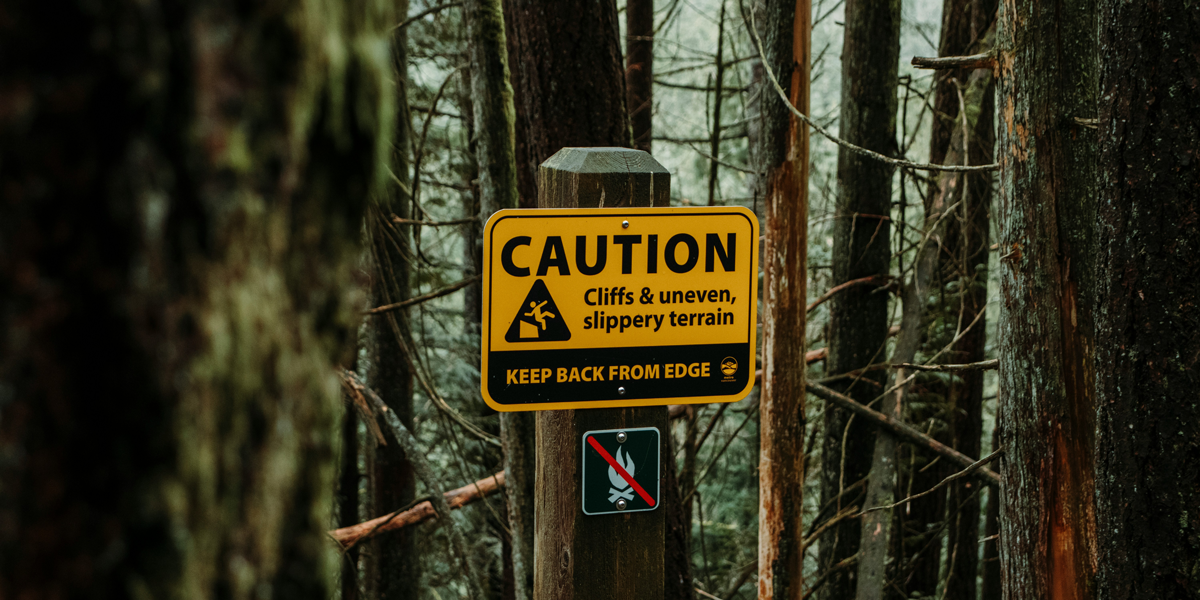
When individuals are able to avoid bearing the costs of their decisions, they can be inclined towards more risky and unethical behaviour.
Sailing across the open sea in a tall ship laden with trade goods is a risky business. All manner of misfortune can strike, from foul weather to uncharted shoals to piracy. Shipping businesses in the 19th century knew this only too well, so when the budding insurance industry started offering their services to underwrite the ships and cargo, and cover the costs should they experience misadventure, they jumped at the opportunity.
But the insurance companies started to notice something peculiar: insured ships were more likely to meet with misfortune than ships that were uninsured. And it didn’t seem to be mere coincidence. Instead, it turned out that shipping companies covered by insurance tended to invest less in safety and were more inclined to make risky decisions, such as sailing into more dangerous waters to save time. After all, they had the safety net of insurance to bail them out should anything go awry.
Naturally, the insurance companies were not impressed, and they soon coined a term for this phenomenon: “moral hazard”.
Risky business
Moral hazard is usually defined as the propensity for the insured to take greater risks than they might otherwise take. So the owners of a building insured against fire damage might be less inclined to spend money on smoke alarms and extinguishers. Or an individual who insures their car against theft might be less inclined to invest in a more reliable car alarm.
But it’s a concept that has applications beyond just insurance.
Consider the banks that were bailed out following the 2008 collapse of the subprime mortgage market in the United States. Many were considered “too big to fail”, and it seems they knew it. Their belief that the government would bail them out rather than let them collapse gave the banks’ executives a greater incentive to take riskier bets. And when those bets didn’t pay off, it was the public that had to foot much of the bill for their reckless behaviour.
There is also evidence that the existence of government emergency disaster relief, which helps cover the costs of things like floods or bushfires, might encourage people to build their homes in more risky locations, such as in overgrown bushland or coastal areas prone to cyclone or flood.
What makes moral hazards “moral” is that they allow people to avoid taking responsibility for their actions. If they had to bear the full cost of their actions, then they would be more likely to act with greater caution. Things like insurance, disaster relief and bank bailouts all serve to shift the costs of a risky decision from the shoulders of the decision-maker onto others – sometimes placing the burden of that individual’s decision on the wider public.
Perverse incentives
While the term “moral hazard” is typically restricted examples involving insurance, there is a general principle that applies across many domains of life. If we put people into a situation where they are able to offload the costs of their decisions onto others, then they are more inclined to entertain risks that they would otherwise avoid or engage in unethical behaviour.
Like the salesperson working for a business they know will be closing in the near future might be more inclined to sell an inferior or faulty product to a customer, knowing that they won’t have to worry about dealing with warranty claims.
This means there’s a double edge to moral hazards. One is born by the individual who has to resist the opportunity to shirk their personal responsibility. The other is born by those who create the circumstances that create the moral hazard in the first place.
Consider a business that has a policy saying the last security guard to check whether the back door is locked is held responsible if there is a theft. That might give security guards an incentive to not check the back door as often, thus decreasing the chance that they are the last one to check it, but increasing the chance of theft.
Insurance companies, governments and other decision-makers need to ensure that the policies and systems they put in place don’t create perverse incentives that steer people towards reckless or unethical behaviour. And if they are unable to eliminate moral hazards, they need to put in place other policies that provide oversight and accountability for decision making, and punish those who act unethically.
Few systems or processes will be perfect, and we always require individuals to exercise their ethical judgement when acting within them. But the more we can avoid creating the conditions for moral hazards, the less incentives we’ll create for people to act unethically.

BY The Ethics Centre
The Ethics Centre is a not-for-profit organisation developing innovative programs, services and experiences, designed to bring ethics to the centre of professional and personal life.
Ethics in your inbox.
Get the latest inspiration, intelligence, events & more.
By signing up you agree to our privacy policy
You might be interested in…
Opinion + Analysis
Business + Leadership, Science + Technology
Blockchain: Some ethical considerations
Opinion + Analysis
Business + Leadership, Relationships, Science + Technology
Are we ready for the world to come?
Opinion + Analysis
Business + Leadership
Why purpose, values, principles matter
Opinion + Analysis
Business + Leadership, Politics + Human Rights
Should corporate Australia have a voice?
BFSO Young Ambassadors: Investing in our future leaders

BFSO Young Ambassadors: Investing in our future leaders
Opinion + AnalysisBusiness + Leadership
BY The Ethics Centre 15 FEB 2024
In 2018 ethics became a household word in financial services, partly because of the Hayne Royal Commission which identified the unethical behaviours and cultures within the industry. While behavioural and cultural change starts with individuals, empowerment doesn’t come easy, particularly at the beginning of one’s career.
Aimed at supporting young professionals, the Banking and Financial Services Oath (BFSO) Young Ambassador Program encourages people early in their careers to adopt a strong ethical foundation in the banking and financial services industry.
We sat down with three former BFSO alumni, Max Mennen (NAB), Michelle Lim (RBA), and Elle Griffin (CBA), to discuss the impact the program has had on them, and what ethics looks like in an industry that’s been through turmoil and has a responsibility to function above and beyond the legal requirements.
TEC: What first drove you to apply for the BFSO program?
Max: My experience in banking up until I did the BFSO program was in a customer facing role and I was exposed to a lot of opinions about banks – why they’re flawed and their wrongdoings. And that wasn’t just from customers, that was just the general introduction that I had while working.
The BFSO certainly aligned with me questioning these sorts of opinions that I’d heard, finding the truth to them and more so seeing how you can rectify [the behaviours that cause] those opinions. It helped me interrogate what work I was doing and how I could make it better.
Elle: I wanted to make an impact outside of my day-to-day role and feel like I was contributing to something bigger than just the bank, but to the community. It also gave me a real responsibility to think about broader issues going into becoming a banker, that we all had a role to play in improving our profession.
Michelle: Coming from a psychology background, I was really interested in contributing to understanding the culture and the conduct that led to all the issues discussed in the 2017 Hayne Royal Commission. I wanted to contribute to those discussions and hopefully be part of that cultural shift.
TEC: Five years on from the Royal Commission, where do you see the role of the BFSO?
Elle: I have always strongly identified with the idea that the BFSO promotes that we are part of a profession, which means that we are more than just employees of our particular bank. Instead, being a professional means that you have competence, care and diligence about how you approach what it is that you do.
I think that what the Hayne Royal Commission showed was that people didn’t approach banking from that kind of noble profession mindset and the BFSO fills that void for the industry. As long as people consider what we do as a profession, we’ll go a long way to avoiding those outcomes in the future.
Max: I think the BFSO could be valued in any industry because what it mainly showed me was an insight into the value chain of what, in our case, the financial services sector provides. It has an impact on the broader economy, but certainly on everyday customers as well. It’s pretty easy to just view your job quite narrowly as the process that you play rather than looking at the impact of what you stand for and what the organisation does. It certainly gave me much better recognition for the role that financial services play and how they can do it better.
TEC: Do you feel there’s more of an appetite for financial institutions to allow time for participating in programs like the BFSO?
Michelle: The BFSO gave me courage and made me feel empowered to lean into something that I was always interested in, which is social justice and equality and equity. It brings people that are like-minded together who are quite young and new in their career, and it gives them this sense of empowerment and courage to actually lean into what we value and what our principles are and then echo and extend that out and amplify that within our organisations and then beyond.
When I started, five or six years ago, I was in the risk culture space and that was still quite new but now I’ve seen that space grow so much and there’s become a heavy focus into conduct and risk. I think organisations are really seeing the value of carving out dedicated time for ethical leadership and what that looks like, and mapping that back to my ethical framework for my organisation and what our purpose is.
TEC: Has it impacted the way you behave long-term in your role?
Elle: I feel very fortunate to have done the program very early in my career because it gives you a worldview, and a really clear way to interpret who you are and the work that you do day to day working in the financial services sector. And it translates to any role that I’ve had in the past five years. It’s helped me realise that not only that you should feel comfortable to speak up, but that I’m required to speak up and I should be speaking up.
TEC: What would you say to somebody wanting to apply to the BFSO?
Michelle: Give 110% and don’t be afraid to ask questions. And invest in the networks and relationships you’ll make. The biggest thing for me is the relationships.
Max: I would say the impacts can be exponential and they’ll last with you.
Applications for the 2024 BFSO Young Ambassador Program are now open until 15 March. Find out more here.

BY The Ethics Centre
The Ethics Centre is a not-for-profit organisation developing innovative programs, services and experiences, designed to bring ethics to the centre of professional and personal life.
Ethics in your inbox.
Get the latest inspiration, intelligence, events & more.
By signing up you agree to our privacy policy
You might be interested in…
Opinion + Analysis
Business + Leadership, Politics + Human Rights
Do diversity initiatives undermine merit?
Opinion + Analysis
Business + Leadership, Politics + Human Rights
Why fairness is integral to tax policy
Opinion + Analysis
Business + Leadership, Science + Technology
Is it ok to use data for good?
Opinion + Analysis
Business + Leadership
A radical act of transparency
Political promises and the problem of ‘dirty hands’

Political promises and the problem of ‘dirty hands’
Opinion + AnalysisPolitics + Human RightsBusiness + Leadership
BY Simon Longstaff 6 FEB 2024
The decision by the Albanese Government to amend the form of the ‘Stage Three Tax Cuts’ – in breach of a much-repeated election promise – has not only unleashed the predictable storm of criticism from the Federal Opposition. More seriously, it has once again raised the question of integrity in politics. Yet, this is a rare case where a broken promise is in the public interest.
The making and breaking of political promises have a special significance in democracies like Australia. Governments derive their legitimacy from the consent of the governed – and consent is meaningless if it is the product of misleading or deceptive information. That is why politicians who deliberately lie in order to secure power should be denied office. It is also why prospective governments should be extremely cautious when making risky promises.
Yet, to argue that ‘keeping promises’ is an essential aspect of building and maintaining trust and legitimacy does not entail that a promise must be kept under any and every circumstance. There may be times when it is literally impossible to keep one’s word – for example, when a government commits to build a facility in a specific location that is later destroyed in a flood. And then there are circumstances where the context is so fundamentally altered as to make the keeping of a promise an act of folly or worse, irresponsibility. President Zelensky is bound to have made many promises to the people of Ukraine prior to the Russian invasion – at least some of which it would be irresponsible to keep in the middle of a war that threatens the very existence of the State.
Some people – notably those who adopt consequentialist forms of ethical reasoning – will argue that a promise should always be broken if, by doing so, a superior outcome is achieved. Others – notably those who place a higher value on acting in conformance with duty (irrespective of the consequences) – will argue that promises should never be broken. I am not inclined to line up with the ‘purists’ on either side. Instead, I prefer an approach in there is acceptance – across the political spectrum – that:
- There is a clear presumption in favour of keeping promises.
- Promises may be broken, but with extreme reluctance, when genuinely in the public interest to do so. That is the breach cannot be justified because it advances the private political interests of an individual or party.
- Any breach must be only to the extent necessary to realise the public interest – and no more.
- Those who break a promise should publicly acknowledge that to do so is wrong and that they are responsible for this choice. That is, they should not seek to deny or lessen the ethical significance of their choice.
Let’s consider how these criteria might be applied in the case of the ‘Stage Three Tax Cuts’.
The key question concerns whether or not it is demonstrably in the public interest to amend the legislated package as it stands. This question cannot be answered by looking at the economic and social implications alone. There is a real risk that trust in government will be eroded – even amongst those who benefit from the changes. And that further erosion in the ‘ethical infrastructure’ of the nation harms us all – not least because of its own tangible economic effects. So, that fact must be weighed in the balance when evaluating the public interest. However, Australia’s ethical infrastructure is also weakened by widening inequality – and by a growing sense of desperation amongst those who feel that their struggles are as much a product of unfairness as they are of forces beyond anyone’s control.
We should never forget that the current cost of living crisis is a form of ethical failure. It was neither inevitable nor necessary. At its root lie the choices made by those who control the levers of economic and political power. As things stand, the community does not trust them to ensure an equitable distribution of burdens and benefits. That widespread popular sentiment is reinforced by daily experience. Ethics – which deals with the way in which choices shape the world we experience – lies at the heart of the current crisis.
So, if changes to the ‘Stage Three Tax Cuts’ can be shown to tilt the table in favour of a more fair and equal Australia, it will have a strong claim to be in the public interest – not least by demonstrating that power can be exercised for the good of all rather than the influential few. Thus, some measure of trust and democratic legitimacy might be restored.
Two final points. First, even with the changes, every Australian taxpayer will continue to be better off than the day before the changes come into effect. To that extent, the policy satisfies the third of the conditions listed above.
Which brings me to the final test: will the Prime Minister and his colleagues accept that the breaking of a political promise is wrong-in-itself – even if necessary to advance the public interest? That would be the brave thing to do. It would involve Anthony Albanese in acknowledging one of the toughest problems in political philosophy – the problem of ‘dirty hands’. This is when a person of principle, as Albanese clearly is, decides to accept the burden of violating their own, deepest ethical sense for the good of others. Then their sense of the moral injury they do to themselves exceeds the bounds of all criticism directed to them by others. They are wounded – and they let us see this.
I believe Anthony Albanese when he says that ‘his word is his bond’. Now, he must own this commitment and acknowledge the cost he and his government must bear in serving the public interest. That will not spare him the pointed criticism of political opponents or of those who sincerely feel their trust betrayed or their interests diminished. However, that honest reckoning is the sacrifice a good person must sometimes make in order better to serve the people.
Image by Mick Tsikas, AAP Photo

Ethics in your inbox.
Get the latest inspiration, intelligence, events & more.
By signing up you agree to our privacy policy
You might be interested in…
Opinion + Analysis
Business + Leadership, Health + Wellbeing, Society + Culture
Corruption in sport: From the playing field to the field of ethics
Opinion + Analysis
Health + Wellbeing, Politics + Human Rights
‘Eye in the Sky’ and drone warfare
Opinion + Analysis
Business + Leadership
David Gonski on corporate responsibility
Opinion + Analysis
Business + Leadership, Society + Culture
The Ethics Centre: A look back on the highlights of 2018
BY Simon Longstaff
Simon Longstaff began his working life on Groote Eylandt in the Northern Territory of Australia. He is proud of his kinship ties to the Anindilyakwa people. After a period studying law in Sydney and teaching in Tasmania, he pursued postgraduate studies as a Member of Magdalene College, Cambridge. In 1991, Simon commenced his work as the first Executive Director of The Ethics Centre. In 2013, he was made an officer of the Order of Australia (AO) for “distinguished service to the community through the promotion of ethical standards in governance and business, to improving corporate responsibility, and to philosophy.” Simon is an Adjunct Professor of the Australian Graduate School of Management at UNSW, a Fellow of CPA Australia, the Royal Society of NSW and the Australian Risk Policy Institute.
Day trading is (nearly) always gambling

Day trading is (nearly) always gambling
Opinion + AnalysisBusiness + Leadership
BY The Ethics Centre 2 FEB 2024
It could just be our algorithms, but over the past couple of years there’s been huge increase in the number of online share trading apps advertising across social platforms, YouTube and broadcast/streaming TV, promising quick and easy access to the share trading market.
Historically, buying and selling shares through a stock broker and getting professional financial advice has been limited to high net worth individuals (with the cost of professional financial advice in Australia ranging from $2000 to $5000-plus per annum). But these apps promise an easy, low-barrier entry point and potential side hustle for people to start buying and selling shares from the comfort of their couch or even their bathroom.
You don’t need any knowledge of the market and its statistics to start buying and selling at this entry level. As noted in The Ethics Centre’s latest podcast Life and Shares, nearly 5000 Australians opened an online account and started trading in the months after Covid-19 hit our shores, holding their shares for one day on average, with 80% losing money (although most would be classified as ‘toe dippers’ rather than traders).
The issue is, many of these trading apps are gamified with incentives, like points accumulation and (relatively valueless) gifts or benefits the more trades you make. These companies charge a fee for every trade, so it’s in their interest for customers to make as many trades as possible. Research by the Ontario Securities Commission found that groups using gamified apps, “made around about 40% more trades than control groups.”
This implicitly encourages day trading, where buyers play on the volatility of the market by buying and selling securities quickly, often in the same day, in the hope of turning a quick profit.
“The general market wisdom is that time in the market generally beats timing the market,” says Angel Xiong, head of the finance department in the School of Economics at RMIT.
Day trading flips this by trying to predict rapid price movements based off the news of the day, and this is where it starts to verge into gambling-adjacent behaviour.
Cameron Buchanan, of ASIC accredited online training centre, the International Day Trading Academy, says, “people often treat trading like they are gambling. And the main reason is because most gamblers don’t expect to lose. So emotionally, a lot of us are hardwired to not [want to] experience loss. We want certainty. And if we are coming into the trading markets, there’s a lot of uncertainty in it.”
Even if you know your stats and have a plan for your buy and sell points, Cameron says, “I know from my own experience, you get so locked into that trade and the emotion is so strong. You don’t want to take that loss because of the hope that the market turns around and gives you that positive feeling.”
Angel Xiong, Head of Finance in the School of Economics at RMIT, studies behavioural financial biases. “One of these biases is something we call attribution bias,” Xiong says, “which means people tend to attribute their success to strategy and skills, but when they lose money, they attribute it to, ‘Oh, it’s just bad luck’. So in terms of whether they [day traders] have strategy, it is really up to debate.” Consequently, Xiong believes, “stock market trading and gambling in casinos or online betting are very similar.”
As Ravi Dutta Powell, Senior Advisor at the Behavioural Insights Team, notes in episode 4, “the more that you gamify it, the more it starts to move into that gambling space and becomes less about the underlying financial products and more about engagement with the app and trying to get people to spend more money even though that may not necessarily be in their best financial interests… The real cost is the increased risk of losing the money you’ve invested because you’re making more trades.”
Addiction specialists, like the clinical psychologist interviewed in episode 3, warn that day traders can develop trading habits that closely resemble gambling addiction. “Certain forms of trading are addictive in and of itself,” the psychologist says. “The more high volatility securities or platforms where you can be in debt to the platform. Those are more risky plays and those can become quite addictive. As somebody who works in gambling, share trading looks identical to that and actually responds to treatment for gambling.”
“As somebody who works in gambling, share trading looks identical to that and actually responds to treatment for gambling.”
Symptoms of addictive behaviour include developing an obsession with trading, chasing winning streaks, trying to recoup losses, investing larger and larger amounts to chase the thrill, buying into the Sunk Cost Fallacy, and investing money in shares you haven’t properly researched.
But even if you’re going for “time in the market,” researching your buys thoroughly and buying blue chip stocks, it can still go bad due to that aforementioned “volatility”. Look at the effect of the Covid-19 pandemic on the market, or the stock market crashes of 2002 and 2008, and it becomes clear that no stock is a “sure win”, especially when your emotions are pushing you to avoid a loss and hold on for the market to turn around.
All you can accurately control, as Life and Shares host Cris Parker puts it in episode 4, is to ask yourself, “What are my values? How much am I prepared to lose?” – and brush up on your financial literacy before you start dropping bundles.
Life and Shares unpicks the share market so you can make decisions you’ll be proud of. Listen now on Spotify and Apple Podcasts.

Ethics in your inbox.
Get the latest inspiration, intelligence, events & more.
By signing up you agree to our privacy policy
You might be interested in…
Opinion + Analysis
Business + Leadership
The sponsorship dilemma: How to decide if the money is worth it
Opinion + Analysis
Business + Leadership, Politics + Human Rights
Survivors are talking, but what’s changing?
Explainer
Business + Leadership, Relationships
Ethics Explainer: Moral injury
Opinion + Analysis
Business + Leadership, Relationships
The future does not just happen. It is made. And we are its authors.
BY The Ethics Centre
The Ethics Centre is a not-for-profit organisation developing innovative programs, services and experiences, designed to bring ethics to the centre of professional and personal life.
Ethical redundancies continue to be missing from the Australian workforce

Ethical redundancies continue to be missing from the Australian workforce
Opinion + AnalysisBusiness + Leadership
BY The Ethics Centre Nina Hendy 16 JAN 2024
Telling staff that they have been made redundant is one of the most difficult parts of anyone’s job. But what’s consistently lacking from these hard conversations is human compassion.
All too often, there are glaring examples of a genuine lack of concern or care being shown by major companies forced to let people go.
Think about it for a second. A person’s identity is wrapped up in what they do for work. After introducing ourselves in a social setting, the next thing we usually share about ourselves is what we do for work.
When Director of The Ethics Centre’s Ethics Alliance, Cris Parker called out the need for a rethink of redundancy done #ethically on LinkedIn recently, plenty of workers chimed in about their own experiences of tragic redundancy stories.
One senior manager revealed he wasn’t even paid a redundancy when being laid off by an Australian company some years ago. Management got around this because the law states that they don’t have to pay redundancy if there are less than 15 employees in the company.
He admits that he still struggles with what happened to him all these years later and wants to see the law changed, admitting that the process was unethical, resulting in people left unsupported and left to struggle financially.
The closed door meeting you didn’t expect
No matter how committed you are to your role, suddenly being made redundant can be an emotionally crippling experience.
But it’s all too common. Media reports reveal that 2023 has been a year of mass redundancies as profits have been squeezed. Nearly 23,000 Australians have been laid off in reported redundancy rounds this year in response to rising interest rates and stubbornly high inflation.
But the real number of actual redundancies is likely to have been much higher as employers only need to notify Services Australia when they lay off more than 15 staff members.
Among the cuts has been KPMG, which announced 200 redundancies in February. Star Entertainment laid off 500 staff in May, while Telstra cut nearly 500 staff in July. The big banks have also been slashing jobs, collectively cutting more than 2000 jobs, according to media reports. There are also examples of companies pushing for staff to leave if they don’t return to the office.
Back in the pandemic, employers were more compassionate in many ways. We saw into our boss’s homes and personal lives and heard about the challenges they were facing. Bonds that haven’t been seen before in the workplace were formed.
At the time, a huge 99% of workers felt that they were working for an empathetic leader in the pandemic, according to KornFerry statistics. This is twice as high than pre-Covid, and it has shaped a new normal that employers need to recognise, even though they may now be facing financial pain amid a much more complex economic time.
Redundancies announced over the lunchroom speaker
Qantas Airways was among the many companies to downsize teams in the wake of Covid, as work was in short supply. In a bid to save a buck, Qantas Airways replaced the ground handling function with outsourced workers, which the Federal Court has since found to be illegal because the airline failed to engage in proper consultation and communication.
In a particularly brutal approach, Qantas reportedly told the 1700 workers about their upcoming dismissal via a lunchroom speaker with no prior warning, which doesn’t demonstrate empathy or compassion.
The case reminds Mollie Eckersley, ANZ operations manager for BrightHR of the US-based Better.com.au CEO who made headlines for making 900 of his staff redundant via an impersonal Zoom call.
She’s the first to accept that making redundancies can’t always be avoided in a bid to keep businesses viable, but cautions that how redundancies are announced to staff can have lasting ramifications on a person.
Approaching job cuts with a transparent, open and empathetic perspective will assist what is already a difficult experience. If not done well the negative impact on the culture is longstanding.
“The Qantas case has highlighted and served a cautionary tale for other businesses considering redundancy plans for its employees. There’s a clear need for robust records – otherwise businesses risk legal action and irreparable damage to reputation. Specific steps must be followed to ensure the process is fair and legal,” says Eckersley.
The rules state that the employer must initiate a meeting with the employee to discuss proposed changes, and that in that meeting, the staffer should be allowed to express concerns, provide feedback and suggest alternatives to redundancy.
But what about the ethical part of this process? People need to be treated with compassion, and giving the employee reasons for letting them go can help soften the blow.
Asking who might like to take a redundancy can be a good first step, because some employees might already have one foot out the door.
Organisations need to ensure they are acting in line with their values. Integrity, care and ethics need to be embedded into the process of making people redundant, particularly when those difficult decisions are made and there are very real human consequences.
This can be done by ensuring that your organisation has a purpose that can inspire those who remain, and be transparent about the reasons for the redundancy, rather than letting them wonder if they might be next.
A great deal of consideration also should be given to the timing of a redundancy announcement. Alternatives to redundancy, such as offering staff shorter working weeks or even reducing pay for a prescribed period of time, should also be considered.
Growing unemployment, mental health issues and the treatment of workers isn’t being addressed by the largest companies using redundancy as a lever amid economic woes, and our government seems intent on allowing the status quo to continue.
We’re all human beings, after all.

Ethics in your inbox.
Get the latest inspiration, intelligence, events & more.
By signing up you agree to our privacy policy
You might be interested in…
Opinion + Analysis
Business + Leadership
What are millennials looking for at work?
Opinion + Analysis
Business + Leadership
United Airlines shows it’s time to reframe the conversation about ethics
Opinion + Analysis
Business + Leadership, Health + Wellbeing
Why ethical leadership needs to be practiced before a crisis
Opinion + Analysis
Business + Leadership
Are diversity and inclusion the bedrock of a sound culture?
BY The Ethics Centre
The Ethics Centre is a not-for-profit organisation developing innovative programs, services and experiences, designed to bring ethics to the centre of professional and personal life.
BY Nina Hendy
Nina Hendy is an Australian business & finance journalist writing for The Financial Review, The Sydney Morning Herald, The Age and The New Daily.
Who are corporations willing to sacrifice in order to retain their reputation?

Who are corporations willing to sacrifice in order to retain their reputation?
Opinion + AnalysisBusiness + Leadership
BY Nina Hendy 23 OCT 2023
In an era where mud sticks like glue, corporate tolerance has waned to such a degree that the need to keep hard-fought reputations is outweighing respect for human fallibility.
Careers and hard-won professional reputations built over many decades can come tumbling down overnight after off-the cuff-comments or even private messages sent to a colleague are made public, overshadowing years of hard work.
And the corporations they work for often seek to condemn, seek a resignation and shuffle talent out the door than chalk it up as an error of judgment, forgive and move on.
Tasmanian Attorney-General Elise Archer was forced to resign after one leaked message to the media appeared to be an exasperated reference to victim-survivors of child sexual abuse. Archer was not given the opportunity to challenge the claims made against her and is adamant that the messages were taken out of context.
Another study found 312 news articles about people who had been fired due to a social media post. These included teachers fired after coming out as bisexual on Instagram, and a retail employee let go over a racist post on Facebook.
While racism was the most common reason workers were fired in these news stories, other forms of discriminatory behaviour included posts about workplace conflict, bad jokes, insensitive posts, acts of violence and even political content. Of course, there’s no doubt of dozens more cases that aren’t even made public.
Are companies too quick to condemn?
The blurred lines between knowingly behaving unethically at work and comments shared without our permission raises the question of whether corporations are too quick to condemn indiscretions in favour of their reputation. While public trust in elected officials is critical, it’s also important to remember that these officials are also human beings.
As workplaces are prioritising accountability and ethical standards to ensure safe and productive environments, too often we are seeing errors of judgement costing hard-working professionals their reputation, not to mention their future earning potential after they are ousted from their job.
It begs the question: What ever happened to an individuals’ right to make a mistake and for the rest of society not to leave them out in the cold forever? Have we come to a point where our inner thoughts and feelings shared in private are indicative of our ability to do our job?
Where we draw the line
Despite private messages being made public costing people their jobs and reputations, career coach Renata Bernarde believes that private messages should remain private and usually aren’t a true reflection of our ability to do our job.
“When leaked, we can see that private messages can offer glimpses into someone’s personal thoughts and feelings, which might be expressed without the filter they would use in a professional setting. That said, if private messages reveal behaviours or beliefs that directly contradict the values and responsibilities of their public role, it’s a valid concern. For instance, a diversity and inclusion leader advocating for equality should not have private messages showcasing prejudice.”
However, Bernarde urges corporations to avoid blanket penalties, saying we need to be cautious about using isolated messages out of context to vilify individuals. “It’s essential to consider the entirety of the person’s character and contributions,” she says.
The art of corporate forgiveness
There are occasional cases of corporate forgiveness. Western Australian man Cameron Waugh was charged with six counts of insider trading and was released on bail. He has since appointed the interim CEO of a company that’s obviously deemed his skills more valuable.
While forgiveness and the opportunity to secure a new job after misconduct is complex and multifaceted, human resources and emotional resilience expert Shane Warren says that it’s important that workplaces acknowledge that making a mistake pertains to the psychological and emotional harm caused by actions that violate one’s deeply held moral beliefs.
“Any doctrine of faith reminds us that human fallibility is an inherent part of our nature, and the capacity to make mistakes is universal. The idea that an individual who has ‘stuffed up’ should not be punished indefinitely for errors resonates with our core principles of fairness and modern desire to embrace personal growth.”
However, Warren admits that balancing the need for accountability with the recognition of our humanity can be challenging. Nevertheless, fostering a culture of learning, growth and restorative justice can help strike a more equitable balance between accountability and compassion in any workplace, he says.
The process of forgiveness and reintegration into the workforce should ideally involve steps such as acknowledging wrongdoing, seeking rehabilitation or counselling, demonstrating genuine remorse and showing a sustained commitment to personal growth and ethical behaviour. The timing for a new job may vary depending on individual circumstances and the severity of the misconduct, he says.
“Perhaps instead, society needs to bear in mind that everyone is fallible. If indiscretions or mistakes happen, when addressed and an apology is allowed to be given, it can lead to greater resilience, better understanding and personal and professional development.”
Ethics in your inbox.
Get the latest inspiration, intelligence, events & more.
By signing up you agree to our privacy policy
You might be interested in…
Opinion + Analysis
Business + Leadership
Ethical issues and human resource development: some thoughts
Opinion + Analysis
Business + Leadership
Getting the job done is not nearly enough
Opinion + Analysis
Society + Culture, Business + Leadership, Health + Wellbeing
Make an impact, or earn money? The ethics of the graduate job
Opinion + Analysis
Business + Leadership, Science + Technology
Is technology destroying your workplace culture?
BY Nina Hendy
Nina Hendy is an Australian business & finance journalist writing for The Financial Review, The Sydney Morning Herald, The Age and The New Daily.
Big Thinker: Karl Marx

Karl Marx (1818-1883) was a philosopher, economist, and revolutionary thinker whose criticisms of capitalism and breakdowns of class struggle continue to influence contemporary thought about economic inequality and the worth of individual labour.
He was not only a prominent figure in the world of philosophy but also a key player in economic and political theory. Marx’s life and work were deeply intertwined with the tumultuous historical backdrop of the 19th century, marked by the Industrial Revolution and the rise of capitalism.
Born in Trier, Prussia (now in Germany), Marx began with a focus on law and philosophy at the University of Bonn and later at the University of Berlin. During his time in Berlin, he encountered the ideas of G.W.F. Hegel, whose methods significantly influenced Marx’s own philosophical approach.
In collaboration with Friedrich Engels, Marx developed and refined his ideas, culminating in some of the most influential works in the history of political philosophy. For example, his infamous The Communist Manifesto (1848) and Das Kapital (1867, 1885, 1894).
Historical materialism and class struggle
One of Marx’s central ideas was historical materialism, a theory that analyses the evolution of societies through the lens of economic systems. According to Marx, the structure of a society is primarily determined by its mode of production: the ways commodities and services are produced and distributed, and the social relations that affect these functions. In capitalist societies, the means of production are privately owned, leading to a class-based social structure separating the owners and the workers.
Marx’s analysis of class struggle underscores the ethical imperative of addressing economic inequality. He argued that under capitalism, the bourgeoisie (owners of the means of production) exploit the proletariat (the working class) for their own profit. This exploitation, he claims, is the engine that drives the capitalist system, where workers are paid less than the value of their labour while the bourgeoisie reap the profits. This exploitation also results in alienation, where workers are estranged from the full effects of their labour and, Marx argues, even from their own humanity.
Marx’s arguments call for a reevaluation of the inherent fairness of such a system. He questions the morality of a society where wealth and power are concentrated in the hands of a few while the masses toil in poverty. This is an ethical challenge that continues to resonate in contemporary discussions about income inequality and social justice.
Marx’s critique challenges us to consider whether a society that values profit and efficiency over the well-being and fulfillment of its members is ethically justifiable.
To address this concern, Marx envisioned a classless society, where the means of production would be collectively owned. This transition, he believed, would eliminate the inherent exploitation of capitalism and lead to a more just and equitable society. While the practical realisation of this vision has proven challenging, it remains a foundational ethical ideal for some, emphasising the need to confront economic disparities for the sake of human dignity and fairness.
Critique of capitalism and commodification
Marx’s critique of capitalism extended beyond its class divisions. He also examined the profound impact of capitalism on human relationships and the commodification of virtually everything, including labour, under this system. For Marx, capitalism reduced individuals to mere commodities, bought and sold in the labour market.
Marx’s critique of commodification highlights the importance of valuing individuals beyond their economic contributions. He argued that in a capitalist society, individuals are often reduced to their economic worth, which can erode their sense of self-worth and dignity. Addressing this ethical concern calls for recognising the intrinsic value of every person and fostering functions in societies that prioritise human well-being over profit.
The communist vision
Marx’s ultimate vision was communism, a classless society where resources would be shared collectively. In such a society, the state as we know it would wither away, and individuals would contribute to the common good according to their abilities and receive according to their needs.
This communist vision raises questions about the ethics of property and ownership. It challenges us to rethink the distribution of resources in society and consider alternative models that prioritise equity and communal well-being. While achieving a truly communist society might be complex or even out of reach, the aspiration of creating a world where everyone’s needs are met and individuals contribute to the best of their abilities is still a general ethical ideal many people intuitively strive for.
Despite this, Marx’s ideas have faced much criticism. Many believe that a classless society with a centralised power risks authoritarianism, Marx’s economic planning lacked detail, communism goes against human nature of self-interest and competition, and historical and contemporary communist systems face large practical challenges.
In spite of, and sometimes because of, these challenges, Marx’s ideas continue to spark ethical discussions about economic inequality, commodification, and the nature of human relationships in contemporary society. His legacy serves as a reminder of the enduring importance of grappling with questions of justice, equality, and human dignity in our ever-evolving social and economic landscapes.
Ethics in your inbox.
Get the latest inspiration, intelligence, events & more.
By signing up you agree to our privacy policy
You might be interested in…
Opinion + Analysis
Business + Leadership
Susan Lloyd-Hurwitz on diversity and urban sustainability
Opinion + Analysis
Business + Leadership, Society + Culture
Banking royal commission: The world of loopholes has ended
Opinion + Analysis
Business + Leadership
Let the sunshine in: The pitfalls of radical transparency
Opinion + Analysis
Business + Leadership
